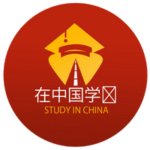In the modern world, medicine is not limited to hospitals and clinics, it is expanding into extreme environments such as deep oceans, high mountains, and even outer space. With China emerging as a global leader in space exploration, its medical education system is also adapting to prepare the next generation of doctors for unique challenges. One of the most exciting trends in this field is the integration of space medicine into MBBS in China, which equips students with the skills to treat patients in environments beyond Earth.
What is Space Medicine?
Space medicine is a specialized field of medical science that studies how space travel affects the human body. Astronauts face conditions such as:
- Zero gravity (microgravity), which impacts bones, muscles, and blood circulation.
- Radiation exposure, which increases long-term health risks.
- Isolation and confinement, affecting mental health and behavior.
- Limited medical resources, requiring innovative treatment methods in emergencies.
By combining traditional medicine with aerospace technology, space medicine aims to keep astronauts healthy during space missions and prepare solutions for long-term human life in space.
China’s Role in Space Medicine
China has made tremendous progress in space research and healthcare innovation through missions like the Tiangong Space Station and its plans for deep-space exploration. To support these missions, Chinese universities are conducting research in areas such as:
- Cardiovascular changes in microgravity
- Bone density loss in space
- Radiation protection strategies
- Telemedicine for astronauts
This research is not only useful for astronauts but also helps solve medical challenges on Earth, especially in remote and extreme environments where healthcare access is limited.
Why MBBS in China Integrates Space Medicine
International students choosing MBBS in China benefit from exposure to advanced research in fields like aerospace medicine, biotechnology, and robotics. Universities are beginning to introduce modules and research opportunities in space medicine to prepare future doctors for global healthcare challenges.
Some reasons why space medicine is becoming part of MBBS programs include:
- China’s Leadership in Space Programs
As one of the few countries with an independent space station, China needs trained medical professionals for astronaut health. - Innovation in Medical Technology
Techniques developed for space, such as telemedicine and robotic surgery, are now used in hospitals worldwide. - Global Relevance
With international collaboration in space missions, doctors trained in space medicine in China will be in high demand globally.
How MBBS Students Are Trained in Space Medicine
Chinese medical universities are incorporating space medicine research and training through:
- Simulation Labs: MBBS students experience simulated zero-gravity environments to study how the body reacts.
- Virtual Reality (VR) Training: VR-based systems are used to teach how to manage medical emergencies in space.
- Collaborative Projects: Students work with aerospace engineers and scientists to understand astronaut health challenges.
- Elective Courses: Some universities offer aerospace medicine electives to MBBS students interested in specialized careers.
- Research Internships: Opportunities in Chinese space medicine institutes allow students to contribute to real-world projects.
Applications on Earth: Space Medicine Benefits for Society
The study of space medicine in MBBS programs is not limited to space travel. Many of its applications help improve healthcare on Earth:
- Telemedicine and Remote Care
Techniques used to monitor astronauts remotely are now used in rural areas and disaster zones. - Robotic Surgery
Originally designed for space missions, robotic surgical systems are transforming hospitals worldwide. - Bone and Muscle Research
Space medicine research helps treat osteoporosis and muscle-wasting diseases. - Psychological Health
Studies on astronaut isolation are improving treatments for mental health issues such as depression and anxiety.
Thus, MBBS students trained in this field contribute to both space exploration and global healthcare development.
International Students and Opportunities in Space Medicine
Many international students in China pursuing MBBS now have opportunities to explore space medicine research. Scholarships and exchange programs allow them to join projects linked with China’s space missions.For example:
- An African MBBS student researching cardiac changes in microgravity later applies this knowledge to treat heart conditions in rural clinics.
- A South Asian student studying telemedicine in space missions uses the same technology to create healthcare apps for underserved communities.
These opportunities highlight how MBBS in China creates globally relevant doctors who can work in both traditional and futuristic medical environments.
Challenges in Integrating Space Medicine into MBBS
While the field is growing, there are still some challenges:
- Specialized Training: Not all universities have the facilities for space medicine simulations.
- High Costs: Space medicine research requires advanced technology and funding.
- Language Barrier: International students may struggle with Chinese-language research materials.
- Limited Awareness: Many MBBS students are not yet aware of the career opportunities in space medicine.
Despite these challenges, more universities are investing in international collaborations, scholarships, and English-medium research opportunities to make space medicine accessible.
The Future: MBBS in China and Space Medicine Careers
The future looks promising for MBBS students in China interested in space medicine. With growing global interest in space tourism, Mars missions, and lunar bases, doctors trained in this field will play a crucial role.
Possible career paths include:
- Aerospace Medicine Specialist
- Space Station Medical Officer
- Researcher in Telemedicine & Robotics
- Global Health Innovator
As space exploration continues, the demand for doctors who understand extreme environments will only increase. China’s focus on combining MBBS education with cutting-edge research makes it an ideal destination for aspiring space medicine experts.

